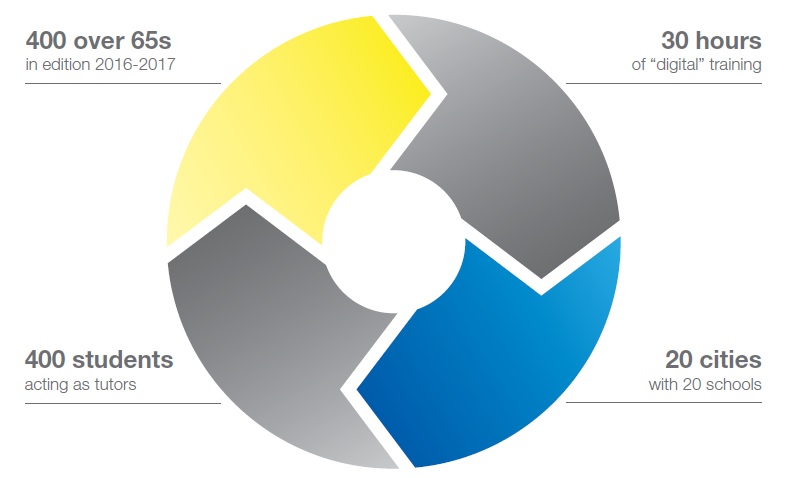In a constantly changing economy, the evolution of internet, explosion of social media, reduced traditional means of communication, together with the changed behaviour of consumers, have all played a decisive role in the emergence of a new system of values.
Digital technology allows content to be created and published, to be quickly and simply accessed and used; consequently more news, opinions and information are available from the consumer’s viewpoint compared to the past.
Digital technology allows content to be created and published, to be quickly and simply accessed and used; consequently more news, opinions and information are available from the consumer’s viewpoint compared to the past.
With the free Wi-Fi project in Post Offices, Poste Italiane testifies its commitment to promoting the development of a widespread digital culture, effectively bringing people closer to technology, especially the weaker groups, and allowing everyone to take advantage of these opportunities.
To use the services in all Post Offices equipped with Wi-Fi – today amounting to 4,119 (32% of the total), of which 895 activated in 2017 - the Customer can access tablets or PC with their smartphone by means of one sole registration. Simultaneous use of up to three mobile devices is possible for each registration and each user can connect for a maximum of three comprehensive hours per day. Moreover, by way of user protection, in the case of service revocation data are eliminated by the systems.
To use the services in all Post Offices equipped with Wi-Fi – today amounting to 4,119 (32% of the total), of which 895 activated in 2017 - the Customer can access tablets or PC with their smartphone by means of one sole registration. Simultaneous use of up to three mobile devices is possible for each registration and each user can connect for a maximum of three comprehensive hours per day. Moreover, by way of user protection, in the case of service revocation data are eliminated by the systems.
Following the success of the first edition in scholastic year 2015-2016, the second edition of “Nonni in Rete. Tutti giovanialle Poste” [Grandparents in the network. All youngsters to Poste” took place from October 2016 to May 2017.
The project represented a privileged opportunity of discovery and meeting between different generations. In the classrooms of Italian schools 400 digital natives and as many citizens over 65 worked together under the supervisionof coordinating supervisors, in order to promote digital literacy, stimulate access to digital services, improve digitalskills and also promote volunteering and civil engagement.

The project represented a privileged opportunity of discovery and meeting between different generations. In the classrooms of Italian schools 400 digital natives and as many citizens over 65 worked together under the supervisionof coordinating supervisors, in order to promote digital literacy, stimulate access to digital services, improve digitalskills and also promote volunteering and civil engagement.



